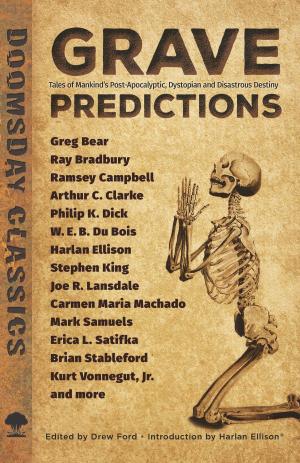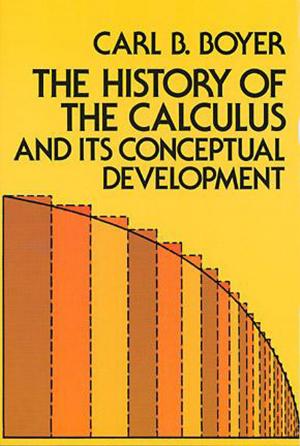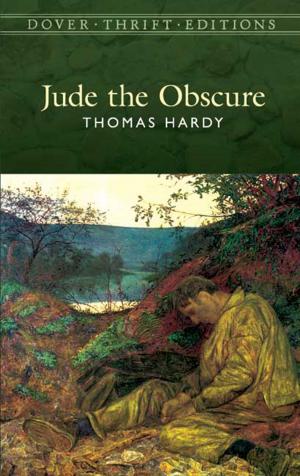| Author: | H. G. Wells | ISBN: | 9780486815183 |
| Publisher: | Dover Publications | Publication: | July 20, 2016 |
| Imprint: | Dover Publications | Language: | English |
| Author: | H. G. Wells |
| ISBN: | 9780486815183 |
| Publisher: | Dover Publications |
| Publication: | July 20, 2016 |
| Imprint: | Dover Publications |
| Language: | English |
In the summer of 1921, a disenchanted journalist escapes the rat race for a drive in the country. But Mr. Barnstaple's trip exceeds his expectations when he and other motorists are swept 3,000 years into the future. The inadvertent time travelers arrive in a world that corresponds exactly to Barnstaple's ideals: a utopian state, free of crime, poverty, war, disease, and bigotry. Unfettered by the constraints of government and organized religion, the citizens lead rich, meaningful lives, passed in pursuit of their creative fancies. Barnstaple's traveling companions, however, quickly contrive a scheme to remake the utopia in the image of their twentieth-century world.
A century after its initial publication, H. G. Wells's novel offers an enduringly relevant look at an ideal society. Conceived in the aftermath of World War I, it reflects the failings of human nature but offers hope for the future, when men and women may live like gods.
In the summer of 1921, a disenchanted journalist escapes the rat race for a drive in the country. But Mr. Barnstaple's trip exceeds his expectations when he and other motorists are swept 3,000 years into the future. The inadvertent time travelers arrive in a world that corresponds exactly to Barnstaple's ideals: a utopian state, free of crime, poverty, war, disease, and bigotry. Unfettered by the constraints of government and organized religion, the citizens lead rich, meaningful lives, passed in pursuit of their creative fancies. Barnstaple's traveling companions, however, quickly contrive a scheme to remake the utopia in the image of their twentieth-century world.
A century after its initial publication, H. G. Wells's novel offers an enduringly relevant look at an ideal society. Conceived in the aftermath of World War I, it reflects the failings of human nature but offers hope for the future, when men and women may live like gods.















